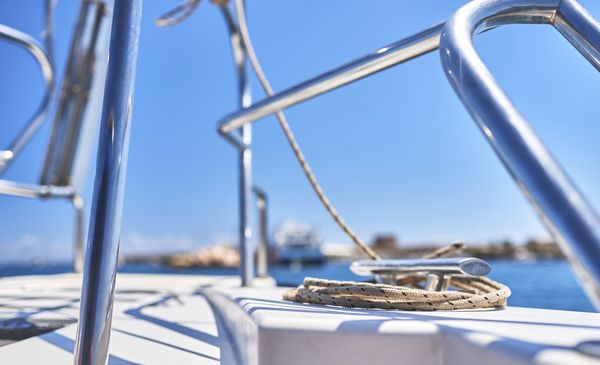Maritime injuries can have devastating effects on the victim and their family, leaving you with many questions. It’s common to be left wondering what to do after a maritime injury and whether you have any legal options.
At Havens & Associates, we understand that many of your questions have to do with your financial situation, mounting medical bills, and ability to work. These are normal worries, and many injured victims may be able to claim compensatory damages to cover their losses.
A skilled Houston maritime injury lawyer can guide you through the process, protecting your rights and advocating for your interests; call us at (713) 955-2215 or fill out our online form for a free consultation.

Your five-step post-maritime injury checklist
Our legal team is dedicated to helping people like you, which is why we’ve compiled a five-step checklist of what to do after a maritime injury. While we may advise specific actions in your situation, most people can benefit from following these steps.
1. Seek medical attention.
Even if you think your injuries are minor, having a thorough exam after a maritime accident is important.
Some serious injuries may not present symptoms right away, such as hairline fractures, internal bleeding or internal organ damage, and soft tissue damage to muscles and ligaments. A doctor can properly evaluate you and diagnose the extent of your injuries.
Plus, your medical records will be an important part of your maritime injury claim. The initial doctor visit documents the severity of your condition and provides the link between the accident and your injury. These records are necessary to prove liability and value your claim.
2. Inform the proper authorities
If you’re injured at work, you should notify your employer as soon as you can. Unlike most other states, Texas does not require most employers to carry workers’ compensation insurance, which provides benefits to injured workers.
However, you should still let your employer know that you’re injured on the job; they can inform you of benefits available under workers’ compensation and how to get them or affirm that they do not carry this type of insurance.
If your employer does not have workers’ comp, then you may file a personal injury suit to compensate you for your losses.
If your maritime injury isn’t work-related, you may still have to inform someone, like the captain of a ship you’re on, or file a police report. Your lawyer can guide you through who to notify and how.
3. Save all documentation of the incident.
After you inform the correct parties about your injury, be sure to ask for a copy of the report for your records. Other important documents to save all medical records associated with the accident and paycheck stubs indicating the time you missed work because of your injuries.
Gather as much evidence as you can, including noting the names and contact information of any witnesses, photos or a video of the accident area and your injuries, and a note of any equipment used or involved.
4. Don’t say anything, and don’t sign anything.
Don’t talk about the details of your accident with anyone but your maritime injury attorney. This includes an insurance adjuster from the other party or their lawyer. You may be asked for a statement, but you don’t have to give one without your lawyer. In fact, many lawyers encourage victims to refer all communications to their offices.
Don’t sign anything, either. Once you’ve signed a statement, incident report, or even a settlement offer, fighting for the full compensation you deserve may be much harder. Insurance companies know that once you sign the settlement agreement, you essentially forfeit your rights to additional compensation.
So, don’t be surprised if an insurance adjuster tries to push you into agreeing to a quick, cheap settlement.
5. Talk to an experienced maritime injury lawyer with Havens & Associates
Maritime and offshore injury cases have complications that land-based injury claims don’t, so look for a lawyer with experience litigating cases involving U.S. maritime laws. Your lawyer protects your rights and shields you from invasive questions the defense team poses.
Your attorney can also evaluate which laws apply in your situation and the jurisdiction for your case. The compensation you may receive often depends on which laws apply in your case, even for workplace injuries.
Do you have a maritime injury claim? Our attorneys are here to help.
If you’ve been hurt on a cruise ship or recreational vessel, while working on a commercial trade ship, on the docks, offshore on an oil rig, or while employed as a maritime worker, then you may have grounds to file a personal injury claim to recover damages.
Havens & Associates, experienced maritime injury lawyers, can help you learn more in a free consultation. Call (713) 955-2215 today.